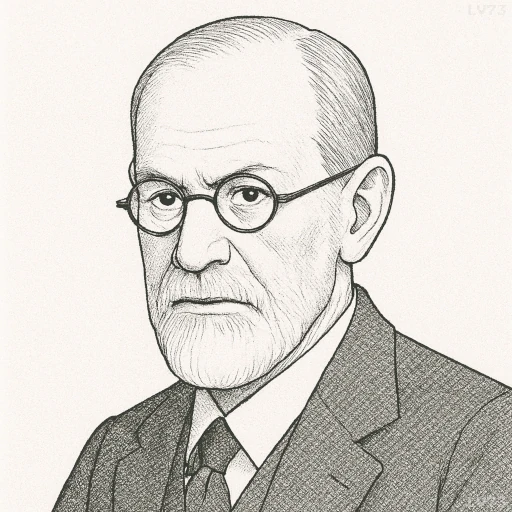“The mind is like an iceberg, it floats with one-seventh of its bulk above water.”

- May 6, 1856 – September 23, 1939
- Austrian
- Neurologist, Founder of Psychoanalysis
table of contents
Quote
“The mind is like an iceberg, it floats with one-seventh of its bulk above water.”
Explanation
In this memorable metaphor, Freud illustrates the core concept of his topographical model of the psyche: that the vast majority of mental life is unconscious, hidden beneath the surface of awareness. The visible part of the iceberg—just one-seventh—represents conscious thought, while the much larger submerged portion symbolizes the unconscious and preconscious mind, which shapes our desires, fears, memories, and behaviors without our direct knowledge.
Freud developed this idea to explain why people often act in ways that defy logic, self-interest, or even their own stated intentions. Beneath the surface lies the id—home to primal instincts—as well as repressed memories and internalized conflicts. The ego and superego attempt to mediate these forces, but they are often influenced by material we cannot see or fully understand. This model profoundly shifted the understanding of human psychology by emphasizing that our inner life is largely inaccessible to conscious introspection.
Today, Freud’s iceberg metaphor remains a foundational image in both clinical psychology and popular culture. While modern neuroscience has refined our understanding of the unconscious, much evidence still supports Freud’s central claim: the conscious mind is only a small fraction of our total mental activity. His metaphor continues to remind us that to truly understand ourselves, we must look not only at what we think—but at what lies beneath the surface, influencing us from the depths.
Would you like to share your impressions or related stories about this quote in the comments section?


